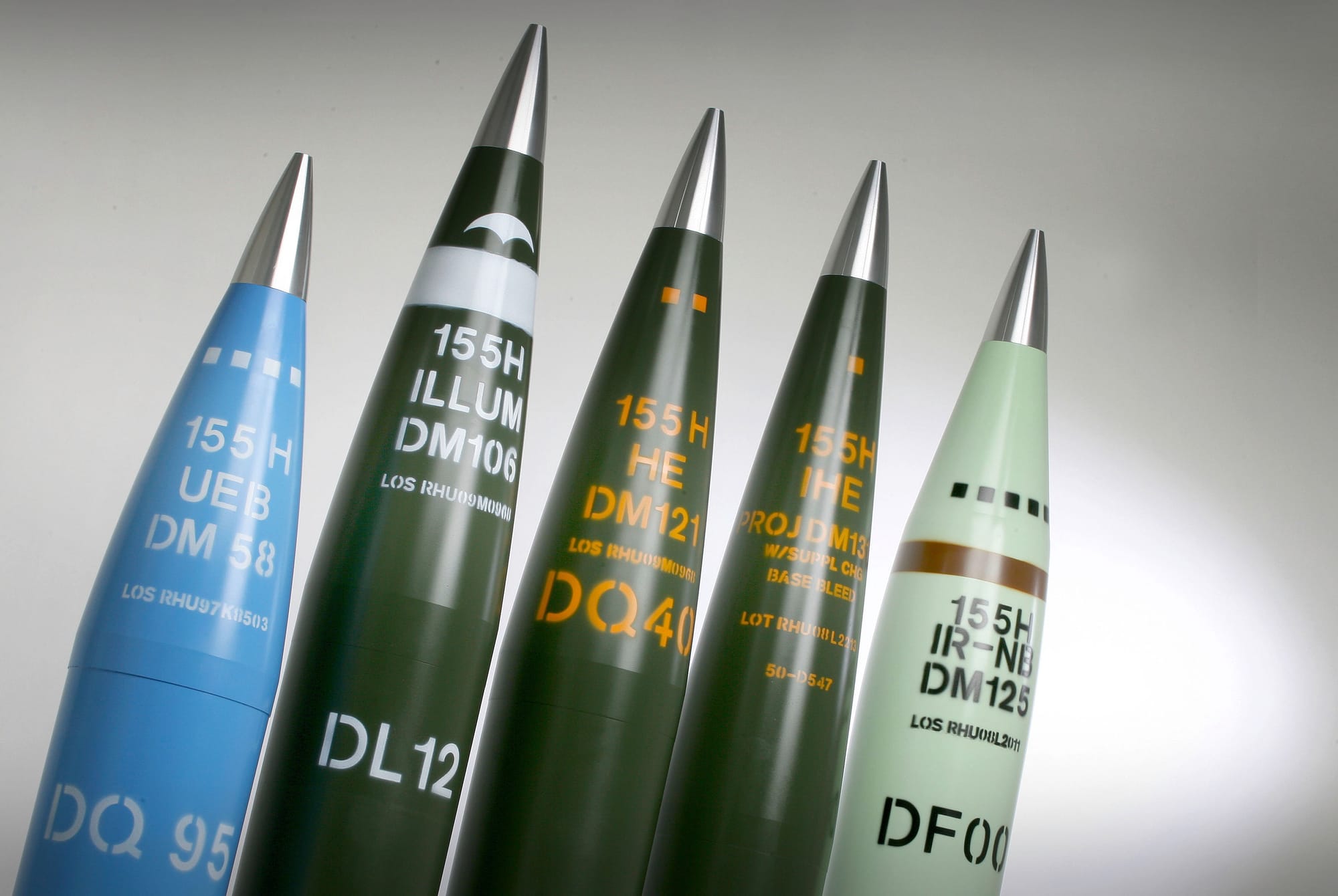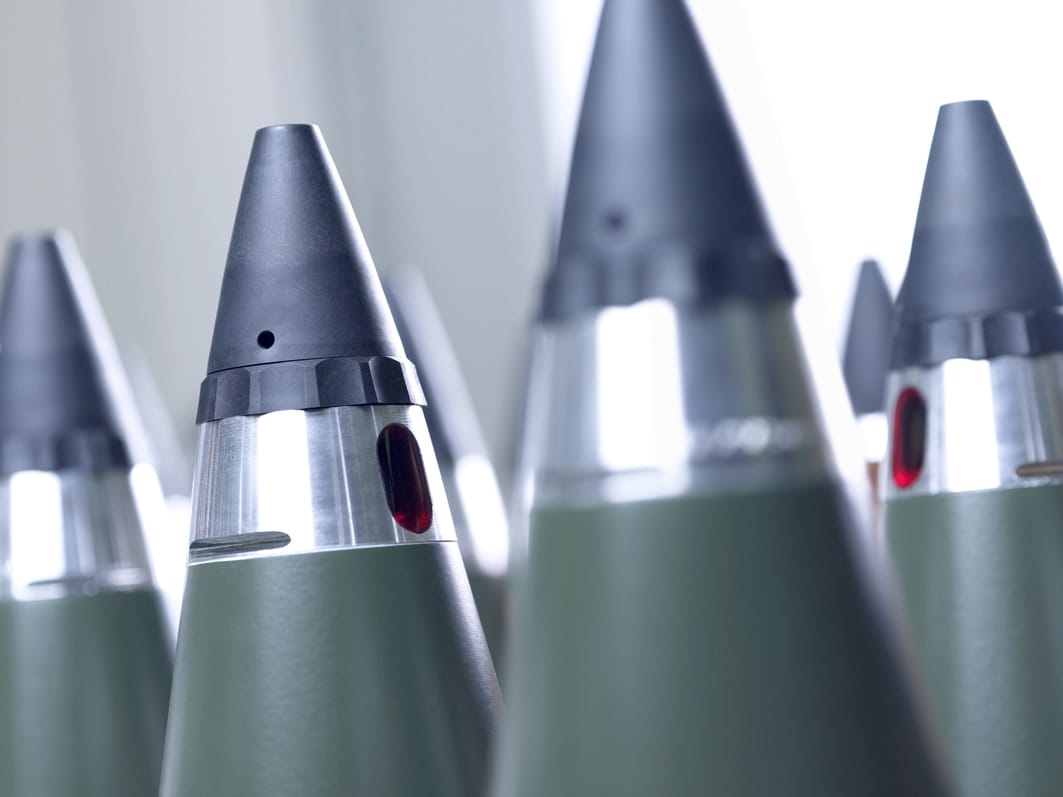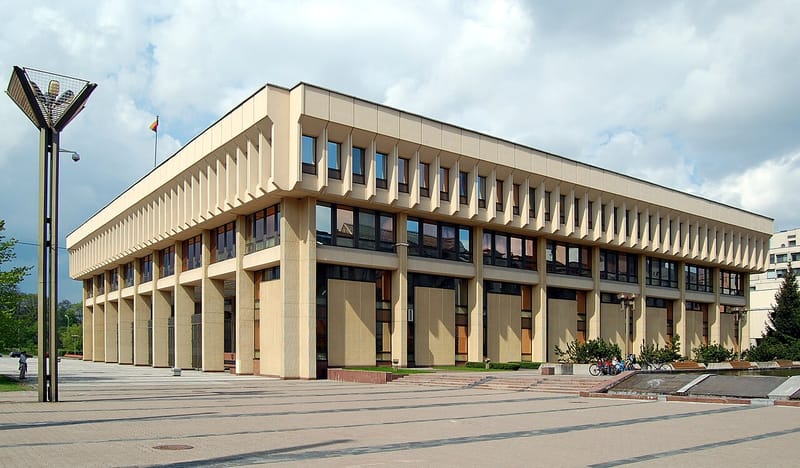Lithuania’s Artillery Surge: Rheinmetall Invests in NATO Flank
Rheinmetall begins construction of a state-of-the-art 155mm artillery shell plant in Baisogala, Lithuania. The €180 million investment, formalized on November 29, is one of the largest defense projects in the Baltics and a realignment of production capabilities in NATO's eastern flank.

The construction of a state-of-the-art 155mm artillery shell production facility in Baisogala, Lithuania, by German defense giant Rheinmetall signifies a milestone in European defense manufacturing. With an investment of €180 million, formalized on November 29, 2024, the facility is among the Baltic region's largest defense industry projects and has been designated as a "state significance" initiative by Lithuanian authorities. This project reflects NATO's strategic realignment, addressing critical ammunition production capabilities on its eastern flank.
Lithuanian Prime Minister Ingrida Šimonytė highlighted the urgency and partnership driving this initiative, emphasizing the importance of resilient supply chains and robust allied cooperation with Germany.
From the outset, the dialogue between the Lithuanian Government and Rheinmetall was driven by a shared sense of necessity and urgency. Šimonytė emphasized this cooperative spirit, stating: “Our defense needs, the importance of the shortest possible supply chains, and the strong allied partnership between Lithuania and Germany underscore the need to maintain momentum as we continue to work in the same spirit of cooperation.”
European Artillery Production Landscape and Strategic Context
When operational in mid-2026, the 340-hectare facility will produce tens of thousands of 155mm shells annually, addressing critical gaps in NATO’s eastern defense architecture. Located approximately 150 kilometers from the Russian exclave of Kaliningrad, the facility represents a bold statement of NATO's commitment to building resilient defense industrial capabilities along its eastern border. The project's designation as having "state significance" by Lithuanian authorities underscores its strategic importance in national security planning.
Rheinmetall CEO Armin Papperger highlighted this partnership’s importance, stating: “It is and remains our aspiration at Rheinmetall to be one of the pillars of national and international security provision. This long-term partnership with Lithuania confirms this once again.”
Lithuanian Defense Minister Laurynas Kasčiūnas hailed the initiative as a landmark achievement for national security, stating, “This historic and important project for our national security was quite a complex process, but through joint efforts, we reached an agreement.”
The Integration of Modern Artillery Manufacturing Capabilities and Technological Innovation
The Baisogala facility will leverage Rheinmetall’s latest manufacturing technologies under its “Range Dominance” concept. It will produce a variety of advanced munitions, including high-explosive shells with insensitive explosives, IR-spectrum illumination rounds, multispectral smoke projectiles, and SMArt 155 sensor-fused rounds capable of autonomous top-attack strikes on armored targets in all weather conditions. These advanced systems are compatible with NATO’s PzH 2000 L52 howitzers, regarded as among the most sophisticated artillery platforms in operation. Additionally, the use of Extended Range Top Charge propellants will enable significantly greater firing distances, further enhancing NATO’s artillery capabilities.
These advanced systems not only address NATO's immediate needs but also enhance supply chain resilience by reducing dependence on imports. Aušrinė Armonaitė, Minister of the Economy and Innovation, emphasized: “By fostering large-scale investment projects and enabling local production of weaponry, we not only address national security needs but also reduce our dependence on arms procured from international markets.”

Großwald Curated: Overview of Artillery Ammunition Capabilities
The facility will feature advanced processes for shell manufacturing and load assembly operations, with capabilities to produce various ammunition types, including:
- High-explosive shells with insensitive explosives
- Illumination rounds for visual and IR spectrum operations
- Multispectral smoke/obscurant projectiles
- SMArt 155 sensor-fused rounds (DM702), capable of precision strikes against stationary and moving armored targets in all weather conditions
The SMArt 155 is a German-developed 155 mm artillery projectile designed for long-range, indirect fire in a top-attack role against armored vehicles. Each round contains two autonomous submunitions equipped with infrared sensors and millimeter-wave radar, enabling them to detect and engage both stationary and moving armored targets with high precision. This "fire-and-forget" capability allows for effective operation across various weather conditions.

Regarding artillery propellants, Rheinmetall has developed the Extended Range Charge (ERC) technology for 155 mm artillery systems. This advanced propellant system enhances the range of artillery projectiles. For instance, when fired from a 52-caliber barrel, the ERC can achieve ranges up to 67.4 km, significantly surpassing the capabilities of conventional propellants.
The SMArt 155 exemplifies advanced precision artillery technology with its autonomous target engagement features, while innovations like ERC propellants play a crucial role in extending the effective range of 155 mm artillery systems.
More related articles on Ground Defense and related weapon systems on grosswald.org:

Economic and Industrial Impact on Lithuania
The project’s €180 million investment will directly benefit Lithuania’s economy, creating approximately 150 high-skilled jobs in Baisogala and stimulating the growth of a robust defense industrial ecosystem. This aligns with Lithuania’s Smart Specialisation Strategy (S3) 2021-2027 and the Industry Digitisation Roadmap 2020-2030, which prioritize advanced manufacturing and innovation. Free Economic Zones (FEZs), like the Kaunas FEZ, provide fiscal incentives and infrastructure to attract foreign investments. Technology parks such as Teltonika High-Tech Hill in Vilnius complement these initiatives, further reinforcing Lithuania’s role in high-tech manufacturing.
The Lithuanian Centre of Excellence for Ammunition, benefiting from special investment and business conditions, is poised to capitalize on this strategy, directly supporting the collaboration with Rheinmetall and representing a significant technology transfer opportunity. Minister Armonaitė remarked: “It is promising to see global leaders like Rheinmetall choosing to be part of this progress.”
Strategic Implications for NATO and Regional Security
The Baisogala plant represents a significant evolution in NATO’s approach to ammunition production, decentralizing operations to mitigate supply chain vulnerabilities. The plant’s capacity will contribute to NATO’s readiness, addressing current and future contingencies while enhancing regional industrial capabilities. Lithuanian officials view this facility as a model for similar projects across NATO’s eastern flank, showcasing the potential for strategic partnerships to bolster collective defense.
As Prime Minister Šimonytė emphasized, the success of this project underscores the importance of allied cohesion. Lithuania’s strengthened position as a regional leader in defense and high-tech manufacturing solidifies its role as a critical NATO ally and a vital contributor to collective security.
More related articles on Lithuania on grosswald.org:







